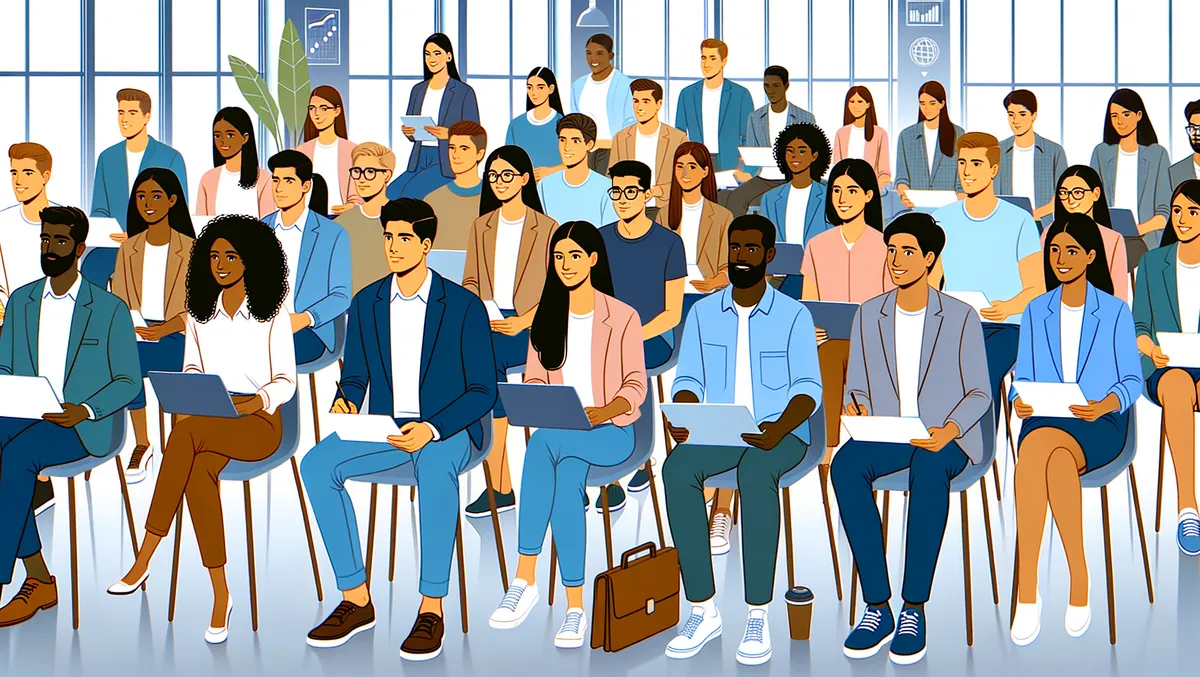
More than a 1/3 of young workforce identifies as neurodivergent
A recent study by CYPHER Learning reveals that over a third (38%) of young people aged between 16 and 24 identify as neurodivergent, hinting at the need for a significant overhaul of the current, generic workplace training approaches. The research shows that neurodivergent conditions such as autism, ADHD and dyslexia are increasingly prevalent among the incoming workforce, suggesting that current one-size-fits-all approaches to staff development may not adequately cater to the needs of these employees.
Among neurodivergent workers, over 21% conveyed that the existing workplace training falls short of meeting their specific needs. This figure escalates to 26% for those between 16 and 24 years old. With a round 28,000 graduates from this group anticipated to join the labour force this September, companies are urged to adapt their development plans according to the needs of their employees. As CYPHER Learning's Chief Executive Officer and Founder, Graham Glass, pointed out, "An untapped well of potential is about to enter the workforce, and HR teams should welcome the challenge of levelling up their L&D programmes to get the most out of their new employees."
Glass advocates for personalised training supported by artificial intelligence (AI) to drive a shift towards bespoke learning. He asserts, "If an employee knows they're receiving the best training for them, they're being set up to succeed… businesses stand to gain a more engaged workforce with supercharged skills."
The research also highlights the struggles faced by neurodivergent individuals, with unemployment amongst this group estimated to be as high as 30-40%. Challenges can arise in the areas of reading and writing, social interaction and communication, coordination and motor skills, and learning disabilities. Emphasising the importance of supporting and developing neurodivergent employees, Laura Watkins, Chief Executive Officer at The Donaldson Trust, stated that the implementation of artificial intelligence platforms would significantly aid in developing more inclusive cultures, reducing stress and anxiety, recognising and celebrating differing abilities, and attracting potential talent.
There is a demonstrated trend towards diagnosing neurodivergent conditions, with adult male diagnoses of ADHD having increased twenty-fold between 2000 and 2018. Moreover, when considering the entire workforce, one in five workers identify as neurodivergent. Despite this, CYPHER Learning reports that many companies have seen positive outcomes, such as increased productivity, innovation, and engagement, from transforming HR processes to be more accommodating of neurodivergent talent. As Glass emphasised, making the workplace more suited to their needs "isn't just a nice to do – it's a smart business decision."
The survey was conducted in collaboration with independent surveyor Censuswide, involving 4,000 workers from C-level executives to entry-level employees. It encompassed participants from the United States and the United Kingdom to gain a broad perspective on attitudes towards workplace training and learning development.


